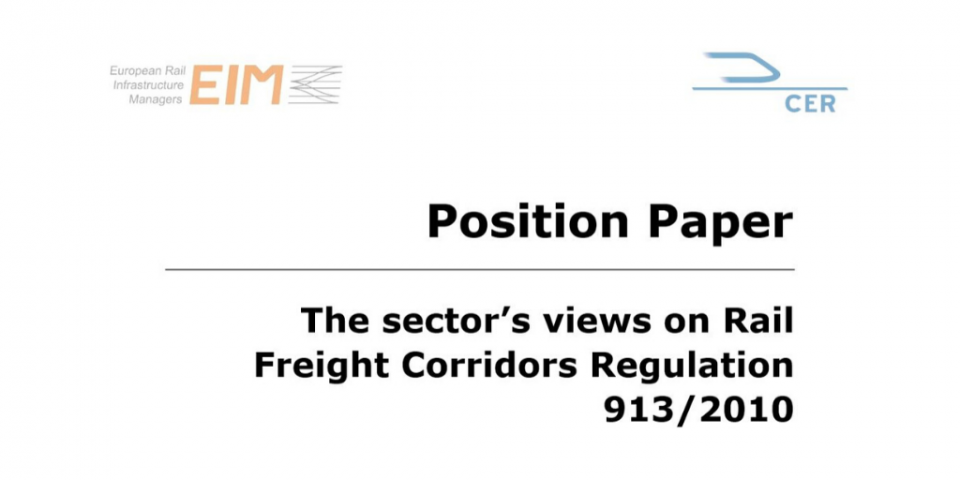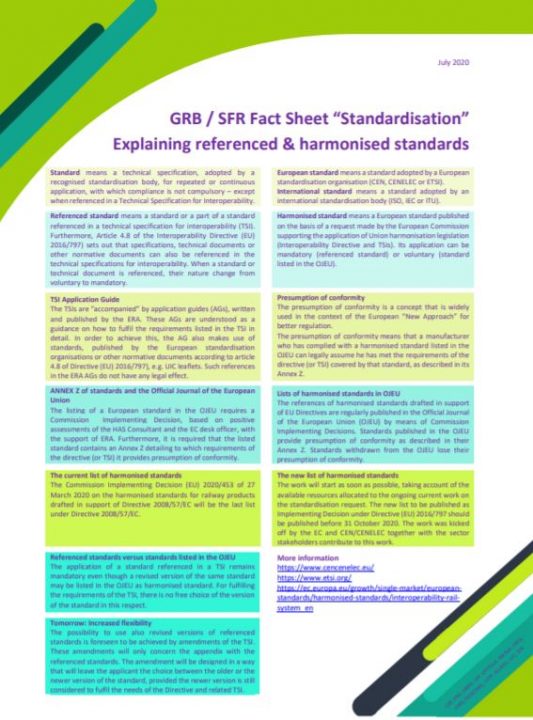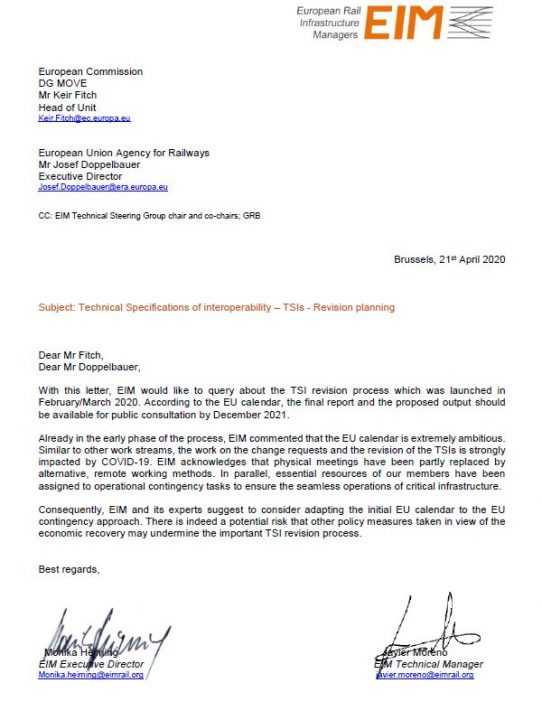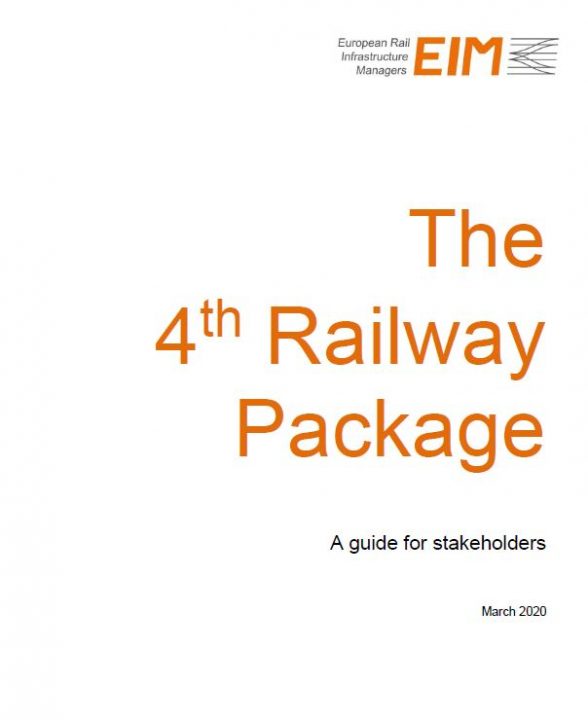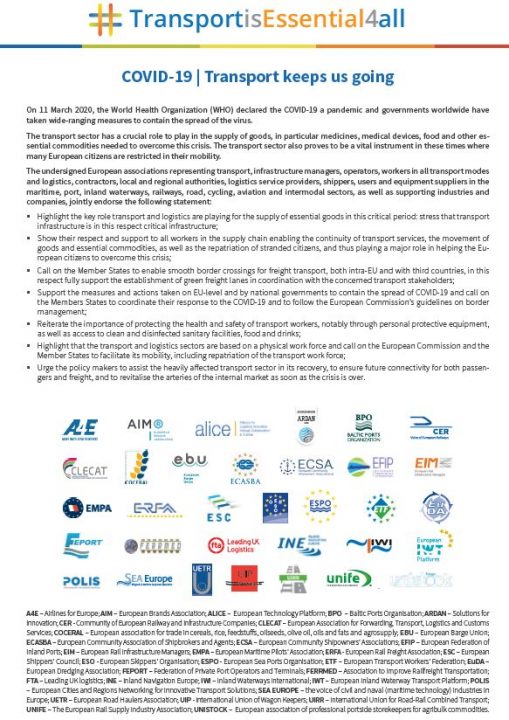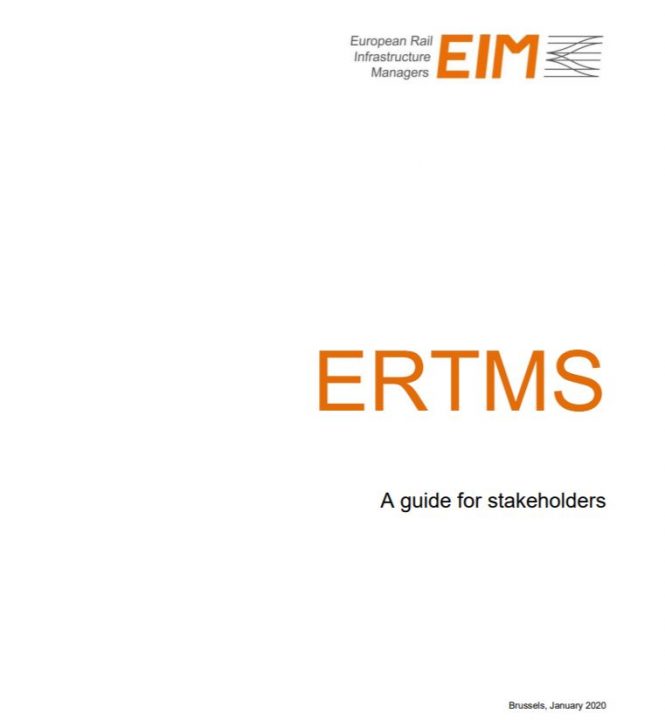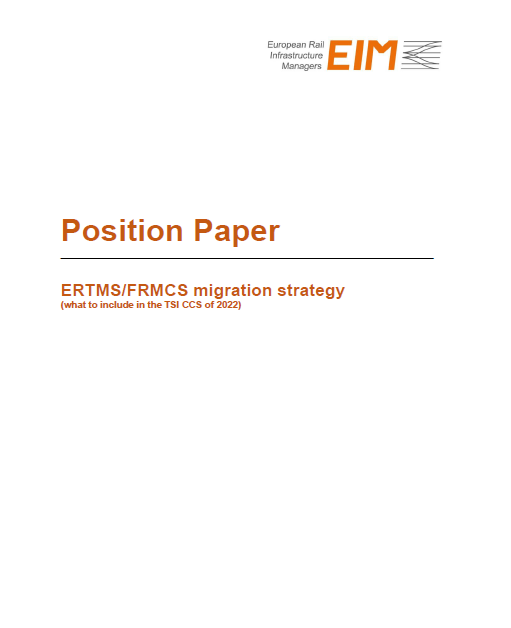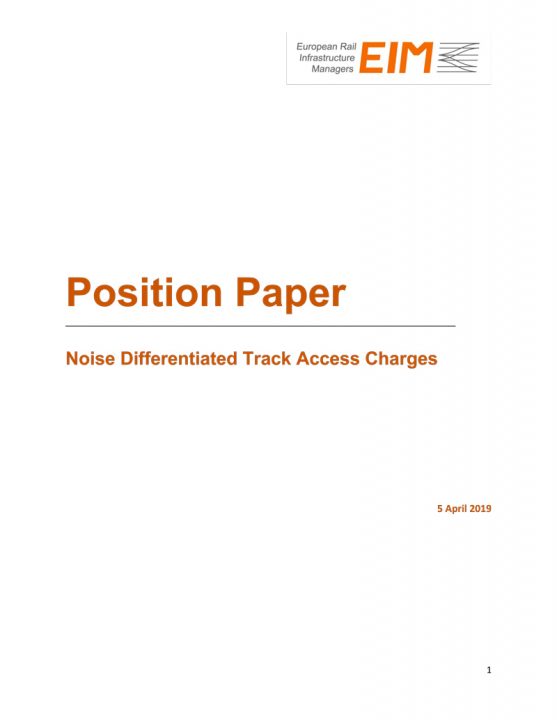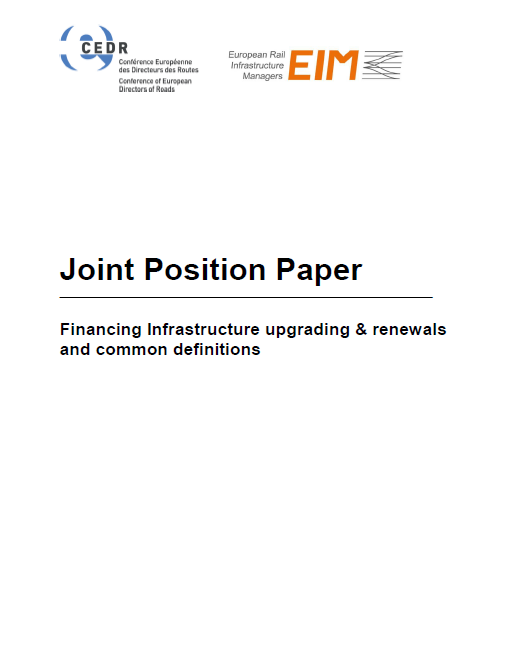17th July 2020
In light of the European Green Deal and the Commission’s goal to reach climate-neutrality by 2050, European rail freight plays an important role. The Rail Freight […]
4th July 2020
Standard means a technical specification, adopted by a recognised standardisation body, for repeated or continuous application, with which compliance is not compulsory – except when referenced […]
24th April 2020
With this letter, EIM would like to query about the TSI revision process which was launched in February/March 2020. According to the EU calendar, the final […]
25th March 2020
Since 1991, the European railway sector is constantly being reformed by the European Union. The largest initiative is the 4th Railway Package, which was adopted in 2016. It is by far the largest and most complex legal initiative.
24th March 2020
On 11 March 2020, the World Health Organization (WHO) declared the COVID-19 a pandemic and governments worldwide have taken wide-ranging measures to contain the spread of the virus.
3rd February 2020
The European control-command, signalling and communication system (ERTMS) was launched in the early 1990s as a research project by some engineers and evolved over time to become the main flagship initiative of the EU. The objectives of ERTMS are multiple: increase safety and capacity of the railway system, decrease costs due to easier maintenance and ensure a fully interoperable system by replacing the national legacy systems. Furthermore, the EU and the European industry endeavour to establish ERTMS as a global reference.
18th July 2019
The railway community is since 2015 working on the standardisation of FRMCS. The development of the future radio system is one of the “game changers” identified in the ERTMS Longer Term Perspective document of ERA. The Control Command System Technical Specification for Interoperability (TSI CCS) will incorporate FRMCS as the successor of GSM-R as the radio system to be used for train-to-track voice communications and for ETCS data communication, also supporting new railway functionalities such as ATO.
5th April 2019
EIM- European Rail Infrastructure Managers- welcomes the evaluation of the implementation of the Regulation and acknowledges that tackling the issue at source would be the most efficient way forward and could help saving significant resources for the infrastructures while contributing to the modal shift and rail freight competitiveness.
1st April 2019
EIM- European Rail Infrastructure Managers- welcomes the evaluation of the implementation of the Regulation and acknowledges that tackling the issue at source would be the most efficient way forward and could help saving significant resources for the infrastructures while contributing to the modal shift and rail freight competitiveness.


